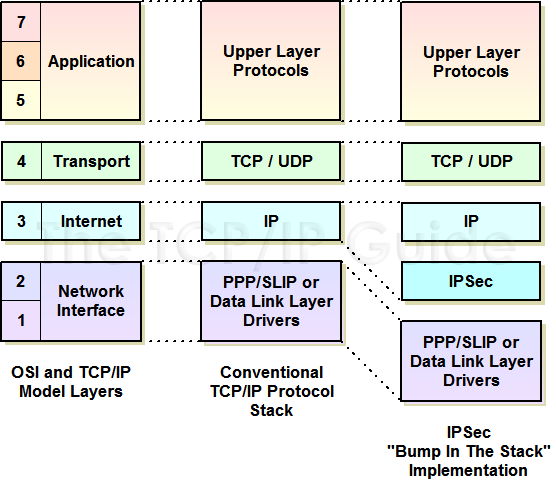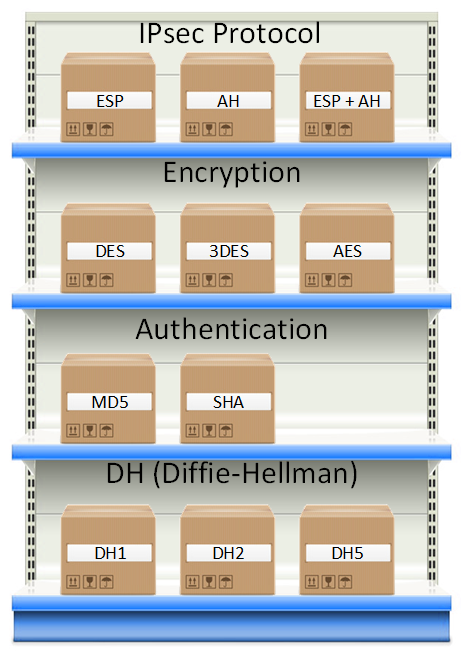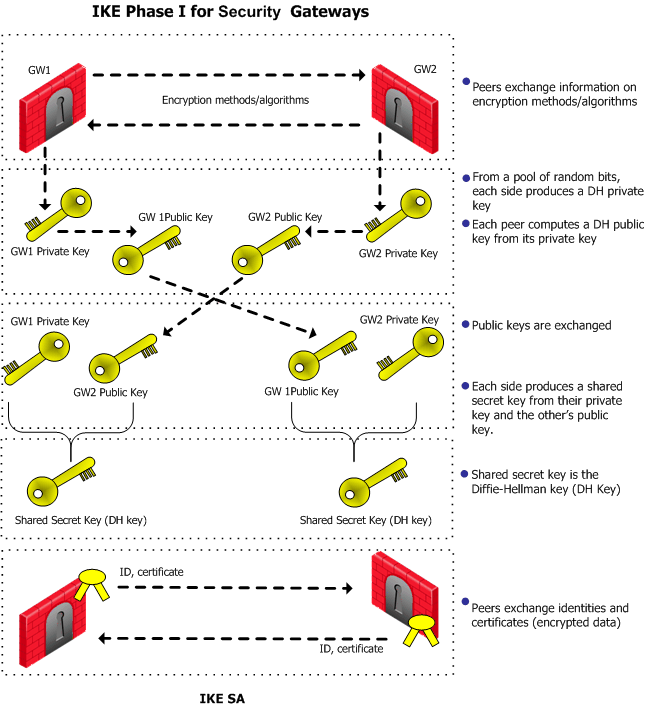Featured
Table of Contents
How Does A Vpn Work? Advantages Of Using A Vpn
These settlements take two kinds, primary and aggressive. The host system that begins the procedure recommends file encryption and authentication algorithms and negotiations continue until both systems settle on the accepted procedures. The host system that begins the process proposes its favored encryption and authentication techniques but does not negotiate or alter its preferences.
When the data has actually been transferred or the session times out, the IPsec connection is closed. The personal secrets utilized for the transfer are erased, and the process comes to an end.
IPsec utilizes 2 primary procedures to provide security services, the Authentication Header (AH) protocol and the Encapsulating Security Payload (ESP) procedure, along with several others. Not all of these procedures and algorithms need to be utilized the particular selection is determined throughout the Settlements stage. The Authentication Header procedure verifies information origin and integrity and supplies replay defense.
Ipsec Vpn
The Kerberos protocol supplies a centralized authentication service, allowing gadgets that use it to authenticate each other. Different IPsec implementations may use different authentication techniques, but the result is the same: the protected transfer of data.
The transportation and tunnel IPsec modes have numerous key distinctions. File encryption is only applied to the payload of the IP package, with the initial IP header left in plain text. Transportation mode is mainly used to provide end-to-end communication between two gadgets. Transportation mode is primarily used in circumstances where the 2 host systems interacting are relied on and have their own security procedures in location.
Encryption is applied to both the payload and the IP header, and a brand-new IP header is added to the encrypted package. Tunnel mode supplies a protected connection between points, with the original IP package wrapped inside a brand-new IP packet for additional defense. Tunnel mode can be used in cases where endpoints are not relied on or are lacking security systems.
Ssl Vpn And Ipsec Vpn: How They Work
This indicates that users on both networks can engage as if they remained in the exact same space. Client-to-site VPNs allow specific devices to link to a network from another location. With this alternative, a remote worker can run on the exact same network as the rest of their group, even if they aren't in the same place.
It must be noted that this method is hardly ever used given that it is difficult to handle and scale. Whether you're utilizing a site-to-site VPN or a remote gain access to VPN (client-to-site or client-to-client, for example) most IPsec topologies come with both benefits and drawbacks. Let's take a more detailed take a look at the benefits and drawbacks of an IPsec VPN.
An IPSec VPN supplies robust network security by securing and verifying information as it takes a trip in between points on the network. An IPSec VPN is versatile and can be configured for various use cases, like site-to-site, client-to-site, and client-to-client. This makes it a good alternative for companies of all sizes and shapes.
What Is Ipsec?


IPsec and SSL VPNs have one primary difference: the endpoint of each procedure. Most of the times, an IPsec VPN lets a user link remotely to a network and all its applications. On the other hand, an SSL VPN develops tunnels to specific apps and systems on a network. This restricts the methods in which the SSL VPN can be used however lowers the possibility of a jeopardized endpoint leading to a wider network breach.
For mac, OS (via the App Store) and i, OS versions, Nord, VPN utilizes IKEv2/IPsec. This is a combination of the IPsec and Web Secret Exchange version 2 (IKEv2) procedures.
Stay safe with the world's leading VPN.
Ipsec Made Simple — What Is Ipsec?
Before we take a dive into the tech things, it's essential to discover that IPsec has quite a history. It is interlinked with the origins of the Web and is the result of efforts to develop IP-layer encryption approaches in the early 90s. As an open protocol backed by constant advancement, it has actually shown its qualities for many years and although challenger protocols such as Wireguard have occurred, IPsec keeps its position as the most extensively utilized VPN protocol together with Open, VPN.
As soon as the communication is established, IPSEC SA channels for protected data transfer are developed in stage 2. Attributes of this one-way IPsec VPN tunnel, such as which cipher, technique or key will be used, were pre-agreed by both hosts (in case of IPsec VPN, this is a connection in between an entrance and computer).
IPsec VPNs are commonly utilized for numerous factors such as: High speed, Really strong ciphers, High speed of developing the connection, Broad adoption by operating systems, routers and other network gadgets, Naturally,. There are alternative options out there such as Open, VPN, Wireguard and others (see the list of essential VPN protocols on our blog).
Ipsec Protocol
When developing an IKEv2 connection, IPsec uses UDP/500 and UDP/4500 ports by default. By basic, the connection is established on UDP/500, however if it appears during the IKE establishment that the source/destination is behind the NAT, the port is changed to UDP/4500 (for info about a technique called port forwarding, examine the short article VPN Port Forwarding: Great or Bad?).
There are numerous differences in regards to innovation, use, advantages, and drawbacks. to encrypt HTTPS traffic. The purpose of HTTPS is to safeguard the content of communication between the sender and recipient. This makes sure that anybody who wishes to obstruct communication will not be able to discover usernames, passwords, banking details, or other sensitive information.
All this information can be seen and kept an eye on by the ISP, government, or misused by corporations and attackers. To remove such dangers, IPsec VPN is a go-to option. IPsec VPN deals with a different network layer than SSL VPN. IPsec VPN runs on the network layer (L3) while SSL VPN runs on the application layer.
What Is Ipsec Protocol? How Ipsec Vpns Work

When security is the primary issue, modern cloud IPsec VPN ought to be selected over SSL because it encrypts all traffic from the host to the application/network/cloud. SSL VPN protects traffic from the web browser to the web server just. IPsec VPN protects any traffic between 2 points determined by IP addresses.
The problem of picking between IPsec VPN vs SSL VPN is carefully associated to the subject "Do You Required a VPN When The Majority Of Online Traffic Is Encrypted?" which we have covered in our current blog. Some may think that VPNs are barely needed with the rise of built-in encryption directly in email, web browsers, applications and cloud storage.
Latest Posts
Best Vpns For Business Travelers To Stay Digitally Fit (2023)
The Best Mobile Vpns Of 2023
Best Mobile Vpn 2023